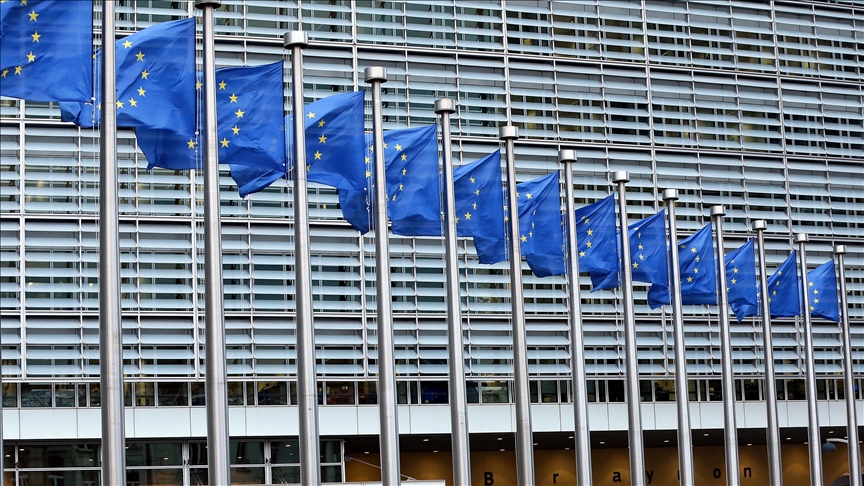
Former EU Ambassadors Call for Sanctions on Israel in Joint Letter
Former EU Ambassadors Call for Sanctions on Israel in Joint Letter
Two hundred and six former ambassadors from the European Union (EU) and its member states have published a joint letter calling for urgent and concrete measures against Israel’s “unlawful actions” in Gaza and the West Bank.
The 206 former ambassadors from EU countries signed the letter ahead of the informal “Gymnich” format EU Foreign Ministers Meeting, scheduled for 29–30 August.
Addressed to the leaders of EU institutions and the 27 member states, the letter stressed that Israel has openly violated international law in Gaza since 7 October 2023, and that the EU’s silence in the face of these violations constitutes a “moral and political failure.”
The letter drew particular attention to the humanitarian catastrophe in Gaza, alleging that the Israeli government is carrying out a plan to forcibly displace one million Palestinians from Gaza and its surroundings to the south, followed by mass deportation to third countries.
Referring to data published on 22 August by the UN-backed Integrated Food Security Phase Classification (IPC), the letter noted that the south of Gaza is now experiencing a “man-made famine,” with around 500,000 people facing hunger, poverty, and risk of death, and 132,000 children under severe threat of malnutrition.
The letter also highlighted that “since 28 July, more than 2,600 Palestinians have been killed, over 12,000 injured, more than 60 children have died of hunger, Israel has obstructed UNRWA and over 100 international NGOs from delivering aid to Gaza, more than 200 local journalists have been killed, international media have been denied access to Gaza, approval has been given for 3,400 new illegal housing units in the E1 area – a blatant move to undermine the two-state solution – and rising settler violence in the West Bank has led to the killing of renowned human rights defender Odeh Hathalin.”
Humanitarian Access and Reconstruction Aid for Gaza
Pointing to the worsening humanitarian crisis in Gaza, the letter called on EU countries to apply diplomatic pressure to ensure full and unhindered humanitarian access to the region.
It underlined that since 2 March, Israel has blocked UNRWA and more than 100 international NGOs from delivering aid, replacing it with aid distributed through armed groups, thereby endangering civilian lives.
The letter stressed that hundreds of thousands of civilians suffering from hunger are unable to meet their basic needs, and urged the launch of an independent and transparent EU-led initiative for Gaza’s reconstruction.
Formal Recognition of the State of Palestine
The letter defined the formal recognition of the State of Palestine as an urgent diplomatic step to preserve lasting peace in the region and the two-state solution perspective.
It emphasized that Israel’s settlement policies and attempts at territorial annexation are making a two-state solution practically impossible, and argued that only the international recognition of Palestine can reinvigorate this solution.
The ambassadors noted that recognition of Palestine by EU member states, either individually or collectively, represents both a legal responsibility and an expectation of European public opinion.
A Nine-Point Action Plan for the EU
The letter presented a nine-point concrete action plan for EU member states to respond to Israel’s violations of international law in Gaza and the West Bank.
The former ambassadors emphasized that until a common EU-level position is adopted, member states could act individually or in like-minded groups.
The letter first called on member states to unilaterally suspend or revoke all arms export licenses to Israel under their national export control laws.
It also urged withdrawal from joint projects with Israeli institutions under EU-funded research programs such as Horizon Europe if there is reasonable evidence that these funds support violations of international law.
The ambassadors stressed that public universities and other research institutions should immediately end cooperation with Israeli institutions accused of committing war crimes.
They further recommended applying national sanctions such as visa bans and asset freezes on Israeli officials on the basis of human rights violations and counterterrorism legislation.
The letter called for temporary national import bans on goods and services linked to illegal settlements until an EU-wide ban is enforced.
It also argued that companies connected to illegal settlements in the occupied Palestinian territories should be excluded from public tenders, state investments, and sovereign wealth funds, and demanded that ships and aircraft transporting arms and ammunition to Israel be barred from using European ports and airspace.
The letter stressed that member states must prosecute war crimes suspects if they enter their territories, and recalled that all EU states are obliged to cooperate with the International Criminal Court (ICC) regarding arrest warrants and investigations.
Finally, the letter called for a ban on data centers and digital platforms in Europe from receiving, storing, or processing data related to Gaza and the occupied territories on behalf of the Israeli government or Israeli commercial entities.